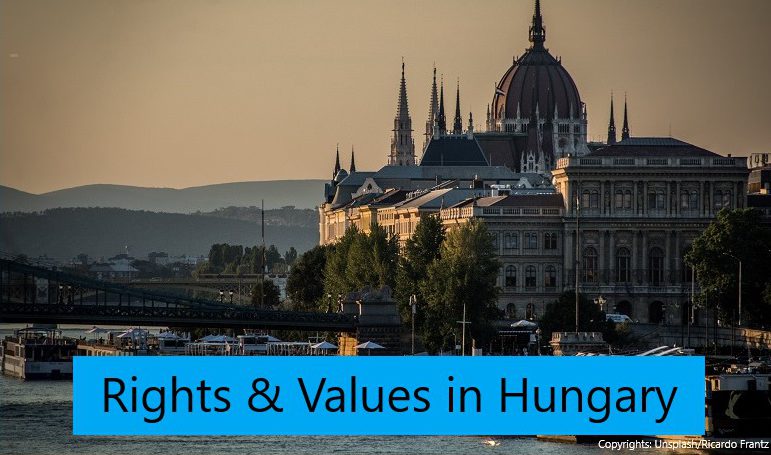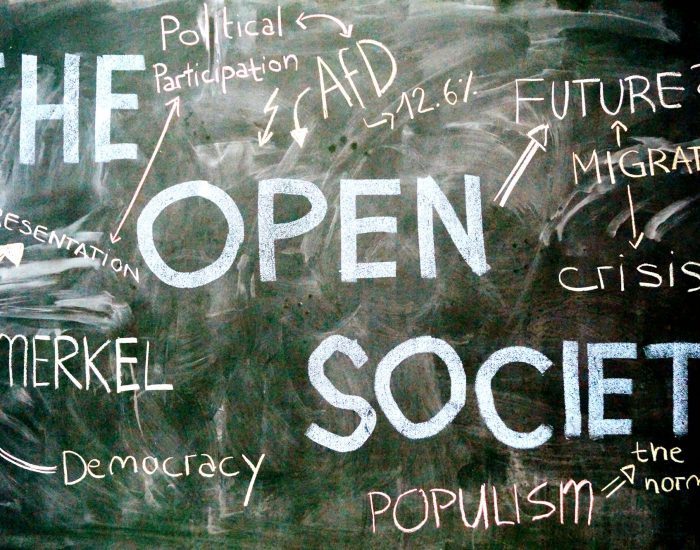It is about more than civil rights
By Veszna Wessenauer.
Research by the Open Society European Policy Institute and d|part shows confusion among Hungarians about the meaning of democratic values.

Hungary’s checks and balances have been steadily eroded since Victor Orban’s sweeping electoral victory in 2010. Civil liberties, the media and academics have been under threat, and democratic institutions demoted to executive bodies of the ruling Fidesz party.
And yet public opinion has barely protested, instead offering passive support to anti-democratic measures. In the 2018 parliamentary elections, Fidesz consolidated its position with two-thirds of the seats, although thanks to the peculiarities of the Hungarian election system, they gained less than half the votes. So, do Hungarians not care about their civil rights, and if they do, why aren’t they defending them?
Most of the respondents to our Situation Room survey said that fundamental rights were essential for a good society. But a closer look at their replies revealed often contradictory attitudes towards democratic values and rights. And when faced with a choice between citizen rights or a stable outlook on cultural, economic and political issues, they generally chose the latter.
Free speech, or controlled speech?
Top of the list of the fundamental freedoms Hungarians value is freedom of expression. Some 94 percent of respondents considered it as very or absolutely essential for a good society[1], and 86 percent believed the media should be allowed to criticise the government.
And yet half (51 percent) agreed with the statement that “government must ensure that media reporting always reflects a positive image of Hungary”. For most respondents, free media does not preclude government control.
Whose views does government represent – majority, minority, or maybe both?
The survey results indicate confusion about the meaning of democratic values — free speech, an independent civil society, respect of fundamental rights – and how they are applied.
The vast majority (90 percent) thought that the views of the government should always represent those of the majority, while 84 percent thought that all political views should be reflected in parliament. A sizeable majority (78 percent) considered both convictions as essential for a good society. Democratic roots are still relatively shallow, as most Hungarians do not consider that a majority-ruled democracy means a closed society.
These inconsistent and sometimes contradictory attitudes towards democratic principles may explain why Hungarians have tolerated the current democratic backsliding. They don’t always recognise anti-democratic measures because they aren’t always clear about the nature of democracy.
Democracy must be learned
The manner in which communism fell in 1989 may explain why Hungarians have a confused understanding of democracy and fundamental rights. The transition to democracy occurred peacefully, without civil strife. Informal civil society movements pushed for democratic change but most Hungarians did not militate for their rights, perhaps because they had no recent tradition of this.
The new post-communist political leadership guaranteed democratic rights, but the system was vulnerable. Despite initial enthusiasm for democracy, most Hungarians were soon more preoccupied with economic security.[2] The communist system had guaranteed economic security, or at least the illusion of it.
Joining the European Union in 2004 was seen by most Hungarians as a step towards greater affluence, even if the official rhetoric was about meeting the EU’s democratic standards. But disappointment and frustration soon replaced hope. The 2008 economic crisis, the left’s political failure, and the rise of the far-right all contributed in Hungary to the weakening of democratic values.
After 2010, and the consolidation of anti-democratic measures, the government started to exploit fears about the economy and security. The absence of shared values or of a clear societal vision provided fertile ground for extreme political polarisation and populist messages.[3]
Their history makes Hungarians particularly concerned about economic and political stability, and it would take a huge effort and a strong political commitment to change this. Younger Hungarians are most receptive to a more open discourse, as they seem deeply committed to democracy, even if so far they have been politically inert.
[1] Respondents were asked to evaluate the importance of statements for a good society. We listed the statements as either closer or open society attributes. These labels were unknown for the survey respondents.
[2] Zsuzsa Ferge, “A Rendszerváltás Nyertesei És Vesztesei,” 1996, http://old.tarki.hu/adatbank‑h/kutjel/pdf/a896.pdf.
[3] Domonkos Sík, Demokratikus Kultúra És Modernizáció — Állampolgári Szocializáció 20 Évvel a Rendszerváltás Után, L’Harmattan kiadó, 2014.
–
Veszna Wessenauer is an analyst and project manager at the Political Capital Institute.
Disclaimer:
The views and opinions expressed in this article are those of the author.



